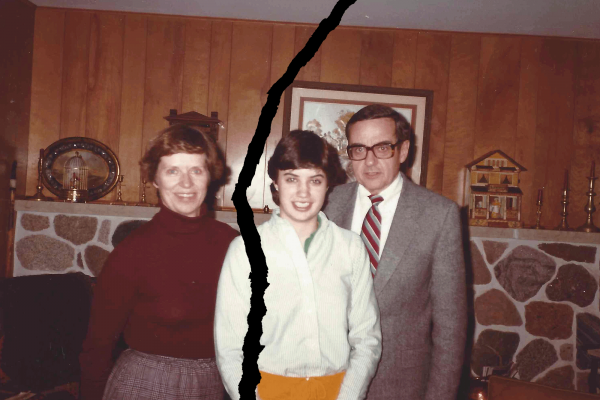The coronavirus pandemic, regardless of the outcome for our society in the weeks (or months) ahead, will undoubtedly be marked as one of the pivotal times in American consciousness, much akin to the 2008 financial meltdown or the 9/11 terrorist attacks. Schools and universities are closed, businesses are shut down, and most houses of worship have completely digitalized their services for the house-locked and quarantined. With calls from political leaders like Kentucky Gov. Andy Beshear to cancel church services across his state, and articles in The Atlantic about the legality of the government to enforce COVID-19 closures of houses of worship, the actions of religious organizations and people of faith regarding worship practices are being scrutinized by those outside of faith communities.
Many houses of worship and faith-based organizations around the country took initiative early on: They followed the protocols of the Centers for Disease Control and Prevention, immediately canceled their services and weekly meetings, and are now finding creative ways to stay connected amid the coronavirus crisis.
Others have dragged their feet. Liberty University President and vocal Donald Trump supporter Jerry Falwell Jr. notably only moved Liberty classes online after Virginia Gov. Ralph Northam issued state prohibitions on gatherings of more than 10 people. However, the campus will remain open and students have a choice of staying on campus or taking all their classes remotely. The announcement caused one Liberty professor to write an op-ed for Religion News Service asking school officials to intervene and cease requiring faculty and staff to be on campus, and for all students who are able to leave Liberty University grounds.
Despite the switch of rhetoric on the coronavirus in the past week from both President Trump and Fox News, some church leaders still refuse to close their doors. They tend to fall into a few different camps.
One maintains the belief that the sheer power of God will protect their congregants. A Pentecostal megachurch minister in Baton Rouge, La., not only believes that fears of the coronavirus are “politically motivated,” but also that the church is immune to the virus’ spread.
Another argument, like that of Cardinal Raymond Burke, a conservative U.S. Catholic cardinal currently residing in Italy, frames worship as an essential service. Burke, a noted critic of Pope Francis, disagrees with suspending Mass as a deterrent for spreading the virus, writing in a statement:
Just as we are able to purchase food and medicine, while taking care not to spread the coronavirus in the process, so also we must be able to pray in our churches and chapels, receive the Sacraments, and engage in acts of public prayer and devotion … God is assuredly with us to help us and save us, especially at the time of severe trial or death, but we are too often far from Him because of our failure to acknowledge our total dependence upon Him and, therefore, to pray daily to Him and to offer Him our worship.
And a third lane is best captured by “Keep the Churches Open,” an article published in the conservative religious journal First Things. In it, R. R. Reno argues that closing churches would be a surrender to a secularized culture that holds a morbid fear of death and mortality, saying, “massive shutdown of just about everything reflects the spirit of our age, which regards the prospect of death as the supreme evil to be avoided at all costs.”
Reno argues against elevating the command to “love your neighbor,” saying, “The first commandment is to love the Lord our God. The first spiritual need of charity is to grow in our love for God, for only then will we have the firm foundation on which to endure the sacrifices and responsibilities that come with loving our brothers.”
While Reno is correct in emphasizing that to love God is the greatest commandment (and one we all fail in our own ways), does that really mean that we should carelessly endanger our neighbors in order to build some sort of “foundation” for loving them?
Fear of furthering the spread of COVID-19 is neither rooted in a milieu of cultural dread of death, nor in political opportunism; rather, the caution shows a healthy concern for the neighbor rooted in the belief of the sacredness of human life — especially the elderly, the sick, and the vulnerable. I’m sure these critics of social isolation could find common ground in the belief of human life’s sacredness.
We know changing church gathering practices is possible — and we know that there’s a biblical precedent: As Rev. Dr. Bill Fullilove from The Washington Institute for Faith, Vocation and Culture aptly points out, Paul and many of the apostles were imprisoned and kept physically separated from other fellow believers following Jesus’ death and resurrection in the age of Roman persecution. They wrote letters to other followers and churches that became part of our sacred Christian canon — encouraging and beseeching us to follow Jesus even today. They had their letters; we have our livestream church services, our texts and calls to loved ones, our videos of music and song. We can use these different modes of communication during this crisis season, and God can still bless it, altering the course of the church in ways we can’t predict.
And perhaps for the better.
Critics claim suspending physical assembly negates the power of God and reveals a lack of faith. This runs through those few American Pentecostal churches who believe they are exempt from physical illnesses because of anointed handkerchiefs or a divine forcefield-like aura over their congregations, but also in the statements and articles of Burke and Reno, who genuinely believe that to close the church is to adopt a secular mindset that holds fear of death over the ultimate authority and power of God.
During Jesus’ second temptation, the Devil took him to the highest point of the temple, cited the scriptures and challenged him to trust and prove in his own divinity by throwing himself off. Here, Jesus cited scripture back to Satan: “Do not put the Lord your God to the test.”
When Jesus could easily rely on God’s power to make a point or to show his ultimate faith and dependence on God and himself, he chose not to. Jesus did perform miracles and wonders, and eventually did offer himself on a cross to be resurrected three days later. But miracles never came out of pressure to prove God. They came out of love. So perhaps, we should ask ourselves, “Do we love our neighbors as ourselves enough to believe that God is present even when our 11 a.m. service is meeting via Zoom?” “Can we congregate digitally and still be the church?”
There are churches already being the church in the time of the coronavirus. A Pentecostal megachurch in Los Angeles recently canceled its services, while using its nonprofit organization to feed people from the area, as well as anyone who walks or drives through the church grounds — all in accordance with CDC protocols. These creative ways of serving our neighbor reveals the power and glory of God more than refusals or grumblings to cancel normal church services.
This was true during the plagues that hit the Roman Empire early in the church’s history, as noted in the publication Foreign Policy:
During plague periods in the Roman Empire, Christians made a name for themselves. Historians have suggested that the terrible Antonine Plague of the 2nd century, which might have killed off a quarter of the Roman Empire, led to the spread of Christianity, as Christians cared for the sick and offered an [sic] spiritual model whereby plagues were not the work of angry and capricious deities but the product of a broken Creation in revolt against a loving God.
It’s commonly held that a crisis reveals one’s character. Perhaps this crisis will reveal what the nature of the church is supposed to be, if not what it actually is.
We can believe that God is great and able, while still refusing to make a mockery of our faith by rejecting the science and experts who are warning us to cease unnecessary physical interactions in order to (as our social media threads have been constantly reminding us) “flatten the curve.” We can believe that God is present and still be either six feet away or in the safety of our homes on Sunday morning. The church will always be the church no matter how physically close its members are. God isn’t just found in the confines of a physical church building — God meets us where we are.
This is the entire crux of the gospel, and for these times and for the community of those who profess to follow Jesus, it’s good news indeed.
Got something to say about what you're reading? We value your feedback!







